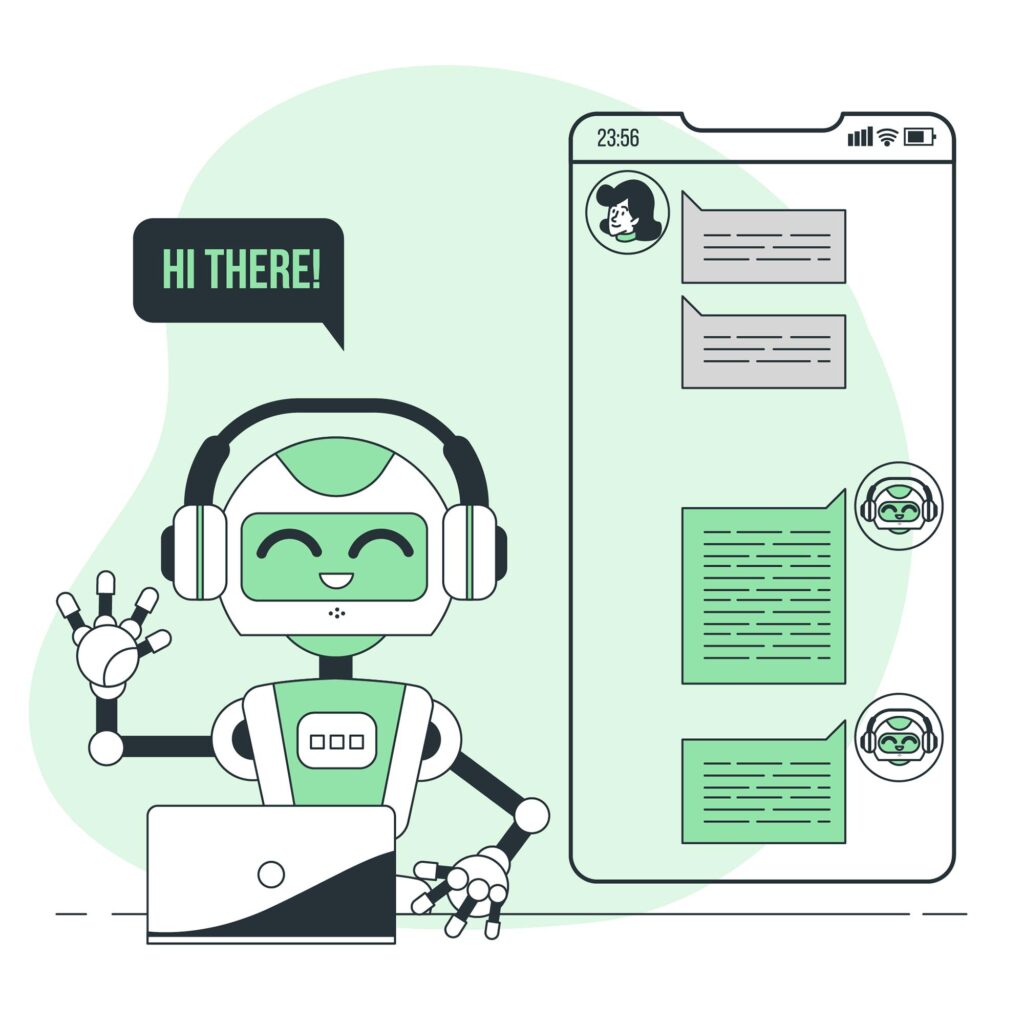
Table of Contents
Digital marketing has become essential for small businesses to thrive in today’s competitive landscape. Here are 10 advanced digital marketing strategies tailored for small businesses to elevate their digital presence and drive growth:
10 Digital Marketing Strategies For Small Business
Personalized Email Marketing:
A personalized email marketing is a highly effective for small businesses to engage and retain customers. By leveraging customer data, businesses can segment their email lists based on demographics, past purchase behavior or user preferences. This segmentation allows for the creation of targeted email campaigns that deliver relevant content to specific audience segments depend on campaign.
Personalized emails can include tailored product recommendations, promotions, or relevant content. Similarly based on the recipient’s interests or past interactions with the brand can be used. By catering to individual preferences and needs, personalized emails enhance customer satisfaction and increase the likelihood of conversions.
Moreover, automation tools enable small businesses to streamline the email marketing process. Also sending personalized messages at scale without requiring significant time or resources. Additionally, analyzing email engagement metrics allows businesses to continuously refine their email marketing strategies, optimizing content and timing for maximum effectiveness for ROI.
Overall, personalized email marketing enables small businesses to nurture customer relationships, drive sales and gain long-term success in the digital marketing landscape.
Interactive Content:
Interactive content is a dynamic approach that engages audiences by encouraging active participation rather than passive consumption. For small businesses, it offers a powerful way to attract and hold the interest and attention to connect with their target audience. Examples of interactive content include quizzes, polls, assessments, interactive infographics and immersive experiences like virtual tours or product demos i.e. artificial intelligence.
Incorporating interactive elements into their digital marketing strategies, small businesses can enhance user engagement, increase time spent on their website or social media platforms. You can encourage social sharing to user or customer. Creating interactive content prompts users to engage, providing valuable insights into their preferences, behaviors and identtify the pain points of user. Small/Medium businesses can leverage to tailor / better offerings and evaluate marketing messages more effectively to it user.
Moreover, interactive content fosters a sense of involvement and personalization. These make users feel more connected to the brand. Emotional connection can lead to improved brand loyalty and increased conversion rates for every campaign you implement with time to time. Additionally, interactive content often generates higher levels of social sharing, extending the reach of the brand and attracting new potential customers.
Overall, interactive content empowers small businesses to differentiate themselves and stand out in crowded digital spaces. Create memorable experiences that strongly matches with their audience that drives the engagement and business growth.
Micro-Moment Marketing:
Micro-moment marketing involves capturing the attention of consumers during brief moments when they turn to their devices to fulfill immediate needs or seek instant information. These kind of moments, often characterized by intent-rich searches on mobile devices, valuable opportunities for small businesses to connect with their audience in real-time with device paid ads.
For small businesses, micro-moment marketing involves identifying and understanding the specific micro-moments relevant target audience. This could include moments when users are researching products, seeking local information, making purchase decisions, or looking for immediate solutions.
Small businesses can effectively meet consumers’ needs in the moment, providing timely and relevant information or offers. This could involve leveraging local SEO techniques to appear in local search results, creating content that addresses common questions or concerns. Even using targeted advertising platform to reach users with personalized messages based on their current context or behavior.
Successful micro-moment marketing requires agility, responsiveness and analytical understanding of consumer behavior. By delivering value in these critical moments, small businesses can drive engagement and conversions Ultimately these method builds stronger relationships with their audience.
Voice Search Optimization:
Voice search optimization is the process of optimizing digital content to ensure it ranks well in voice search results. Which is generated by voice-enabled devices such as smartphones, smart speakers and virtual assistants like Siri, Alexa or Google Assistant. With the increasing prevalence of voice search, small businesses must adapt their digital marketing strategies to capitalize on this emerging trend.
To optimize for voice search, businesses should focus on natural language queries and long-tail keywords. Even thayey should focus on mimic conversational phrases rather than traditional keyword strings. This involves understanding how users speak when using voice search and tailoring content accordingly.
Additionally, optimizing for local search is crucial, as many voice searches are location-specific queries, such as “near me” searches for local businesses or services. Ensuring accurate and up-to-date business listings on platforms like Google My Business can improve visibility in local voice search results.
Furthermore, providing concise and direct answers to common questions relevant to your business can increase in the voice search snippets, also known as “position zero” or “featured snippets.”
By implementing voice search optimization strategies, small businesses can enhance their online visibility or presence. With presence, businesses can improve user experience and stay ahead in today’s voice-driven digital landscape.

Augmented Reality (AR) Experiences:
Augmented Reality (AR) experiences offer innovative ways for small businesses to engage with their audience and differentiate themselves in the digital marketing environment. AR integrates virtual elements into the real world that provide interactive and immersive experiences through smartphones, tablets or wearable devices.
In digital marketing, AR can be leveraged to showcase products or services in a dynamic and interactive manner. This allows customers to visualize and experience them before making a purchase from small businesses. For example, furniture retailers can offer AR apps that allow customers to see how a piece of furniture would look in their home, while cosmetic brands can provide virtual try-on experiences for makeup products.
Moreover, AR experiences can enhance brand awareness and drive engagement through gamification and interactive storytelling. Small businesses can create branded AR filters, games, or scavenger hunts that encourage users to interact with their brand in novel ways. This will foster a deeper connection and increasing shareability on social media platforms due to engagement.
By incorporating AR into their digital marketing strategies, small businesses can create memorable experiences that captivate their audience and drive brand loyalty. Ultimately, boost sales and revenue with these digital marketing strategies. AR not only provides a competitive edge but also demonstrates a commitment to innovation and customer-centricity.
Influencer Partnerships:
Influencer partnerships have emerged as a powerful strategy in digital marketing strategies, especially for small businesses seeking to expand thei reach and credibility. By collaborating with influencers relevant to their niche or target audience and small businesses can leverage the influencers’ existing follower base. Their content will influence to promote their products or services authentically.
Influencers, particularly micro-influencers with smaller but highly engaged audiences, can provide an effective way to tap into specific market segments and generate buzz around a brand. Influencers authenticity and personal connection like followers make them valuable advocates for businesses looking to build trust and credibility with ease.
Through influencer marketing partnerships, small businesses can reach new audiences, increase brand awareness and drive conversions. Whether through sponsored content, product reviews, or ambassador programs. Influencer collaborations allow businesses to showcase their offerings in an organic and making them more appealing to potential customers.
Moreover, influencer marketing partnerships offer opportunities for user-generated content, as they often create authentic and engaging content featuring the brand, It can be repurposed and shared across digital channels, further amplifying the brand’s message and impact.
Overall, influencer partnerships represent a cost-effective and impactful strategy for small businesses. To enhance their digital marketing efforts, connect with their audience and drive business growth with sales, revenue or attention.

Chatbots and AI-powered Customer Service:
Nowadays chatbots and AI-powered customer service solutions are revolutionizing digital marketing for small businesses. Enhancing customer engagement and streamlining support processes. These automated systems use artificial intelligence and natural language processing to interact with customers in real-time. It provid instant assistance and resolving inquiries efficiently.
For small businesses, implementing chatbots on their website, social media platforms or messaging apps enables them to offer 24/7 support, even with limited resources. Chatbots can handle common customer queries, provide product recommendations, assist with purchases, and even initiate personalized conversations based on user behavior.
Moreover, AI-powered customer service solutions can analyze customer interactions and data to identify trends. Even AI powered can identify the pain points, enabling businesses to improve their products, services and marketing strategies. By harnessing the power of machine learning, businesses can deliver more personalized and relevant experiences to their customers. Even they can build loyalty and satisfaction to target audience.
Additionally, chatbots can facilitate lead generation and conversion by guiding users through the sales funnel, answering questions and offering assistance at every stage of buyer’s journey. This seamless integration of AI-powered customer service into digital marketing strategies enables small businesses to deliver exceptional customer experiences and gain a competitive edge in the current trending market.
User-Generated Content Campaigns:
User-generated content (UGC) campaigns are an effective digital marketing strategies for small businesses to leverage the power of their community and foster engagement. UGC involves encouraging customers to create and share content related to the brand, products, or services. Which can then be repurposed and shared across digital channels for better reach.
Small businesses can initiate UGC campaigns by launching contests, challenges, or hashtags. This can incentivize customers to share their experiences, reviews, photos or videos featuring the brand. This not only generates authentic and relatable content but also fosters a sense of community and brand advocacy among customers.
UGC campaigns provide social proof, as content created by real customers serves as endorsements for the brand, influencing the purchasing decisions for potential customers. Moreover, UGC enhances brand visibility and reach. As user-generated content is shared organically across social media platforms which extends the brand’s reach to new audiences based on hashtag.
By incorporating UGC into digital marketing strategies, small businesses can build trust, strengthen customer relationships and drive conversions. Additionally, UGC campaigns provide valuable insights into customer preferences, behaviors and sentiments. Enabling small businesses to tailor their offerings and marketing messages more effectively. Overall, UGC campaigns empower small businesses to amplify their brand presence and engage their audience in meaningful ways.
Data-driven Decision Making:
Data-driven decision-making is a fundamental approach in digital marketing that empowers small businesses to make informed and strategic choices. Further it is based on actionable insights derived from data analysis from analytics tools. By collecting and analyzing data from various sources such as website analytics, social media metrics, customer feedback and sales reports. Now businesses can gain valuable insights into customer behavior, preferences and trends.
For small businesses, data-driven decision-making enables more effective targeting and personalization of marketing efforts. By understanding their audience demographics, interests and purchasing patterns, businesses can tailor their messaging, content and offers. More they even can resonate better with their target customers, thus maximizing the impact of their marketing campaigns.
Moreover, data-driven decision-making facilitates optimization and refinement of digital marketing strategies. By continuously monitoring key performance indicators (KPIs) and analyzing campaign performance, businesses can identify areas of improvement, allocate resources more efficiently and iterate on their strategies to achieve better results over time.
Additionally, data-driven insights enable businesses to stay agile and responsive to changes in the market landscape, consumer behavior, and competitive dynamics. By leveraging real-time data, businesses can adapt their digital marketing strategies and tactics quickly, ensuring they remain relevant and competitive in today’s fast-paced digital environment.
Overall, data-driven decision-making empowers small businesses to drive growth, enhance customer satisfaction and achieve long-term success in digital marketing.

Cross-Channel Integration:
Cross-channel integration is a strategic approach in digital marketing strategies that involves synchronizing and aligning marketing efforts. Even using multiple channels and platforms to deliver a cohesive and consistent brand experience to customers. For small businesses, cross-channel integration is essential for maximizing reach, engagement, and effectiveness in today’s omnichannel landscape.
By integrating various digital marketing channels such as social media, email, website, mobile apps, and offline channels, businesses can ensure t randing. In branding their messaging and customer experiences are unified and seamless across all touchpoints. This holistic approach enables businesses to reach customers wherever they are in their buying journey, whether they’re browsing social media, reading emails, or visiting the website.
Moreover, cross-channel integration facilitates data sharing and analysis, allowing businesses to gain a comprehensive understanding of customer behavior and channels. By consolidating data from various sources, businesses can create more personalized and targeted marketing campaigns. The more personalized content improves relevance and effectiveness for users.
Furthermore, cross-channel integration enables businesses to optimize marketing strategies and identifying high-performing channels and reallocating budgets accordingly. This data-driven approach ensures that businesses can maximize their ROI and achieve their marketing objectives effectively.
Overall, cross-channel integration empowers small businesses to deliver a cohesive and engaging brand experience. Enhance customer satisfaction and drive growth in today’s interconnected digital ecosystem.
Conclusion
By implementing these advanced digital marketing strategies, small businesses can effectively compete in the digital realm, attract and retain customers, and ultimately achieve sustainable growth in today’s dynamic marketplace.




Leave a Reply